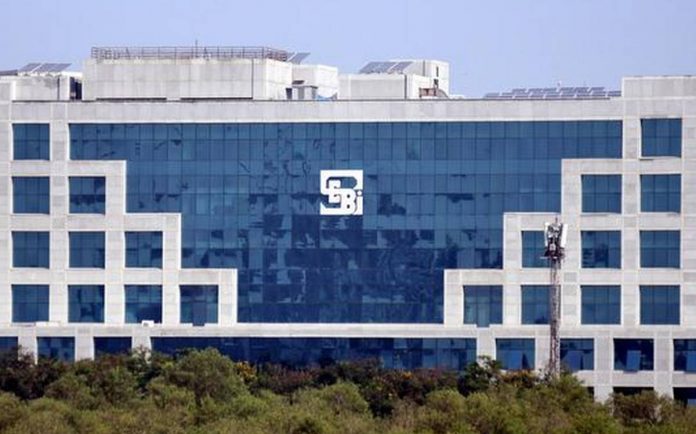This article is written by Amarpal Singh, a student at School of Law, UPES Dehradun.
Table of Contents
Introduction
According to Section 14 of the Insolvency and Bankruptcy Code, 2016 (hereinafter “IBC”), the National Company Law Tribunal (hereinafter “NCLT”) on the insolvency commencement date by order shall be required to declare a moratorium prohibiting the institution of suits or continuation of pending suits or proceedings against the corporate body, including the execution of any judgement or order in any court of law, tribunal, arbitral panel, or other authority.
This issue gained prominence in the case of Dewan Housing Finance Corporation Limited (hereinafter “DHFL”) v. SEBI, wherein the issue for consideration before the Securities Appellate Tribunal (hereinafter “SAT”), constituted of whether the SEBI can initiate or continue the proceeding for violation of securities laws against the corporate debtor. This article aims to provide an analysis of the case through an exploration of the question concerning.
Facts
The Reserve Bank of India (hereinafter “RBI”) suspended the board of directors of DHFL under Section 45 IE of the Reserve Bank of India Act, 1934 and appointed an administrator to manage the affairs of the company. Subsequently, RBI also filed an application under rule 5(a)(1) of Insolvency and Bankruptcy (Insolvency and liquidation proceedings of financial service and Application to Adjudication) Rules, 2019 before the NCLT to initiate a corporate resolution insolvency process (hereinafter “CIRP”) against the DHFL.
The application was admitted, and the moratorium was ordered under Section 14 of IBC. After the commencement of CIRP, the adjudicating officer of SEBI issued a show-cause notice (hereinafter “SCN”) to DHFL under rule 4 of Securities Exchange Board of India (Procedure for Holding Inquiry and Imposing Penalties by Adjudication officer) Rules, 1995 to show cause why penalty should not be imposed for the non-compliance of provisions of regulation 16 of Securities Exchange Board of India (Issue of Listing of Debenture Securities) Regulations, 2008 (hereinafter “Listing Regulations”) read with rule 18(7)(b)(ii) and rule 18(7)(c) of Companies (Share and Capital) Rules, 2014 (hereinafter “Share and Capital Rules”) and regulation 52(1) read with regulation 52(4) of Securities and Exchange Board of India (Listing Obligations and Disclosure Requirements) Regulations, 2015 (hereinafter “LODR Regulations”).
SEBI in the SCN alleged that DHFL had failed to create requisite debenture redemption reserve and failed to invest 15% of the amount of non-convertible debentures under Listing Regulations that were maturing on 31st March 2020. DHFL had also failed to submit the audited financial and line items as prescribed by LODR Regulations.
In the reply to the SCN filed by DHFL, it was stated that since the company is undergoing CIRP in view of Section 14 of IBC, no proceedings can be instituted or continued against the company in the currency period of moratorium. Pending consideration, the adjudicating officer of SEBI, imposed a penalty of INR 20 lakhs on DHFL and held that Section 14 of IBC does not prevent such adjudicating officers from determining the liability of the corporate debtor. The moratorium merely prohibits recovery/ enforcement proceedings but the proceeding in the instant matter was concerned with determining the liability of the corporate debtor for non-compliance with securities regulation and securities law. Subsequently, an appeal was filed by DHFL before the SAT against the order of the adjudicating officer of SEBI.
Issue
Whether SEBI has jurisdiction to initiate proceedings against the company when a moratorium is imposed under Section 14 of IBC?
Judgement
The order passed by the SEBI adjudicating officer referred to the observation made by the Insolvency Law Committee Report, 2018 that a proceeding initiated to determine or assess the liability is different from recovering the assessed or determined liability. The moratorium imposed on a proceeding to determine liability may not have been the intent of IBC. The SAT held that the adjudicating officer should not have referred to the Insolvency Committee Report, 2018 since external aids for interpretation should only be considered in situations of ambiguity.
It was further held that once the moratorium is imposed under Section 14 of IBC, the adjudicating officer will not have jurisdiction to institute proceedings. Therefore, the order of the SEBI adjudicating officer, proceedings of recovery under Section 28A upon failure to pay and SCN are quashed, as proceedings cannot be instituted after the moratorium is imposed under Section 14 of IBC.
Analysis
Courts do not have the jurisdiction to interpret the provision using external aids when there is no ambiguity in the provision
In the case of Sri Jeyaram Educational Trust & Ors v. A.G Syed Mohideen & Ors., the Supreme Court of India held that it is a settled principle that the provision of a statute must be read as it is, in a plain, natural, and straight manner, without omission and substitution of words. The provision of a statute should be assigned and ascribed their natural and ordinary meaning. When reading in such a manner leads to absurdity, vagueness, and ambiguity, only then should courts open their interpretation tool kits which contain settled rules of interpretation and principles to decipher the true meaning of the provision. In the present case, the SEBI adjudicating officer had referred to the Insolvency Committee Law Report, 2018 to interpret Section 14 of the IBC, although Section 14 is patently clear that no proceedings can be continued or instituted against the Corporate Debtor once the moratorium is imposed.
Evidentiary value of Parliamentary Committee Reports
The issue of whether the courts can place reliance on Parliamentary Standing Committee Reports (hereinafter “PSCR”) was dealt by the Indian Supreme Court in the case of Kalpana Mehta v. Union of India, wherein it was held that courts may rely on PSCR as an external aid for interpretation of statutory provisions, in the event that such provisions are shrouded in ambiguity. The PSCR acts as a guide to understand the historical background of law or the nature of the problem which the statute had sought to cure and only has a persuasive value while resolving the ambiguity in the statutory provision.
Further, it was held that although the PSCR is admissible as evidence, the court is not bound by any findings or factual observation in the court. The court also agreed with the conclusions of two earlier cases, namely R.S. Nayak v. A.R. Antulay and State of Mysore v. R.V. Bidap wherein it was clarified that the conclusions of PSCR are not decisive. The courts are free to arrive at a different conclusion. Thus, the Insolvency Committee Report, 2018 which was referred to by the SEBI adjudicating officer has only persuasive value.
Section 14 of IBC prevails over Section 28A of the SEBI Act
The NCLT in the cases of Bohar Singh Dhillon v. Rohit Sehgal & Ors. and Anuj Agarwal v. Bombay Stock Exchange & Ors., held that Section 28 A of SEBI Act is inconsistent with Section 14 of the IBC by virtue of Section 238 of IBC which states that provision of the IBC will override if there is any inconsistency between IBC and any other law for the time being in force or any instrument which has effect under any such law. Therefore, SEBI cannot recover any penalty from the Corporate Debtor during the moratorium period.
Proceedings instituted after imposition of moratorium under Section 14 of IBC are non-est in law
In the case of Alchemist Asset Reconstruction Limited v. Hotel Gaudavan Pvt. Ltd., an arbitrator was appointed who entered upon reference and issued notice to the parties, despite the order of moratorium under Section 14 of IBC. The Supreme Court, while setting aside the order of the district judge for appointment of arbitrator held that arbitration instituted after the imposition is non-est in law.
Also, in the case of M/s. Innoventive Industries Ltd. v. ICICI Bank, the Supreme Court had held that any proceedings under any law cannot be instituted against the corporate debtor once moratorium under Section 14 of IBC is imposed.
Thus, the proceedings instituted by the adjudicating officer of SEBI after the imposition of the moratorium were non-est in law.
Conclusion
It can be concluded from the above analysis that SAT rightly held that SEBI cannot initiate proceeding against the company after the moratorium is imposed under Section 14 of IBC. This decision of SAT will help to preserve the assets of corporate debtors and allow the available resources to be utilized effectively for the completion of CIRP.
References
- Bharat Vasani & Varun Kannan, Evidentiary value of Parliament Reports, corporate.cyrilamarchandmangaldasblogs.com (March 9, 2021)
- SAT bars SEBI from initiating proceedings after moratorium declared under IBC, (Oct. 9, 2021)
http://finseclawforum.com/2020/sat-bars-sebi-initiating-proceedings-moratorium-declared-ibc/.
- SEBI’s Penalty of Rs. 20 lakhs on DHFL Quashed by SAT, Legal Era, (Oct 19th, 2020)
LawSikho has created a telegram group for exchanging legal knowledge, referrals, and various opportunities. You can click on this link and join:
 Serato DJ Crack 2025Serato DJ PRO Crack
Serato DJ Crack 2025Serato DJ PRO Crack











 Allow notifications
Allow notifications


